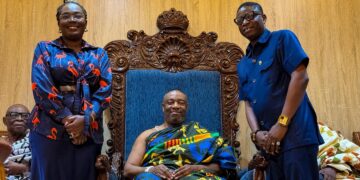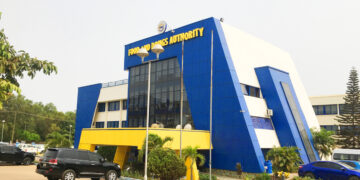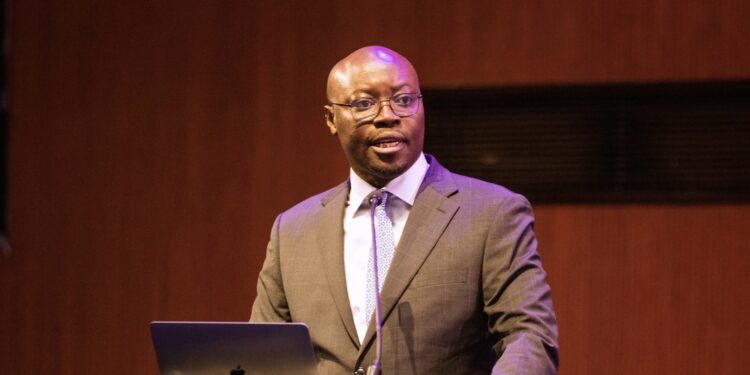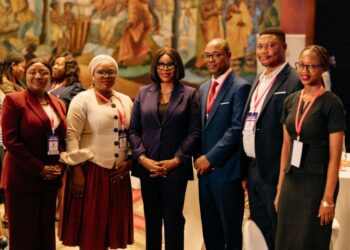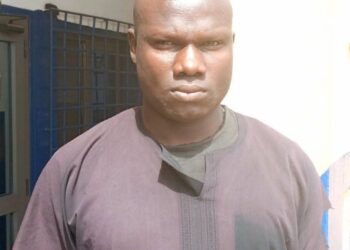Hon. Speaker, as always, I am most grateful for the opportunity to make a statement to welcome Hon. Members and your good self, to the commencement of the third meeting of the fourth session of the eighth parliament.
It feels good to see everyone back and I am grateful to the Lord almighty for His protection upon us all.
Mr Speaker, kindly indulge me to bring to your notice, and to the notice of this House, some matters that require urgent national attention. These matters are worrying as they have the potential to disturb the peace and threaten the stability of our democracy, if not checked.
Prior to the last District Assembly elections, the Minority Caucus raised concerns about the conduct of the Electoral Commission during the limited registration. This was because the Commission made terrible decisions that threatened the integrity of Ghana’s electoral processes.
This set the Electoral Commission on a collision course with some political parties, civil society organisations and potential first-time voters.
In February 2023, the Minority had cause to say that “this Electoral Commission enjoys taking unwholesome decisions, being disruptive, fancies courting public disaffection and enjoys being roundly condemned by right thinking people”.
We said this at the time because the Electoral Commission had taken a decision to restrict first-time voters to register only at the offices of the Electoral Commission. That reckless decision had the potential to disenfranchise or deprive the vast majority of first-time voters the opportunity to have their names captured on the voter register.
That decision of the Electoral Commission made the registration of new voters during the limited registration period difficult, cumbersome, painful and laborious for those who were qualified to register.
The decision of the Electoral Commission also imposed huge unplanned financial burden on Members of Parliament, Parliamentary candidates and political parties.
Persons who were registering for the first time were needlessly subjected to frustrations and great inconveniences while Members of Parliament were subjected to significant and unplanned out-of-pocket expenditure.
People had to travel long distances to the district offices of the Electoral Commission, endure long delays from queues and suffer the agony of broken-down registration equipment and network failures.
One would have thought that the Electoral Commission would learn lessons from the reckless decisions that I have just recounted, which created chaos and confusion all over the place. But no, this Electoral Commission learnt nothing from them.
These same terrible decisions have been repeated by the Electoral Commission in the just-ended voter registration as well as the ongoing vote transfer exercise.
The Electoral Commission is making a simple electoral process very cumbersome, frustrating, expensive and burdensome.
These developments do not inspire hope in our electoral process. Rather, they give many people and some political parties cause to question the integrity of the processes ahead of the 2024 general elections.
We are concerned that if these frustrating actions and decisions of the Electoral Commission is not checked, it can negatively impact the peace and stability of our democracy.
Despite the Electoral Commission’s earlier agreement with political parties at IPAC to let party agents monitor vote transfer, the Commission made a strange announcement banning party agents from going ahead to monitor the exercise.
Again, it took strong pushback from the National Democratic Congress (NDC) and condemnation from the public to get the Electoral commission to backdown from that ridiculous announcement.
These developments are unhealthy for our electoral process and democracy and go a long way to ground public perception of bias on the part of this particular Electoral Commission.
Why must this Electoral Commission always take questionable decisions which create chaos and confusion across the country?
Why must the actions of this Electoral Commission always threaten the peace and stability of Ghana’s democracy?
Why must it always take a massive pushback and public backlash to get the Electoral Commission to do the right things? This is worrying!
While we acknowledge that the Electoral Commission is an independent body, it must be pointed out in no uncertain terms to the Electoral Commission that it does not have the independence to make dangerous, ridiculous and outrageous decisions that can affect the peace and stability of our country and this democracy.
It is therefore imperative that Parliament calls the Electoral Commission to order to save this democracy and protect the peace and stability of our dear country.
Mr Speaker, the NDC minority caucus want to use this forum to demand an urgent committee of the whole to iron out these grave concerns with the Electoral Commission before it is too late.
Rt. Hon. Speaker, may I now touch on another issue of considerable national concern.
Only a few days ago, we woke up to the news of another scandal; that the government is giving away Ghana’s 5G spectrum to a shadowy entity, Next Gen Infraco Company Limited, for the next 10 to 15 years.
Under this deal, Next Gen Infraco Limited has been given the exclusive right to build, own and operate the entire 5G infrastructure network across the country, for the use of all mobile network operators, internet service providers and other interested entities.
Interestingly, President Akufo-Addo granted executive approval for this sweetheart deal on 22nd August 2023, barely one week after the company was incorporated on on 16th August, 2023.
This arrangement was non-transparent, was awarded without any competitive process whatsoever, and has not been subjected to parliamentary approval as required by section 33 of the Public Financial Management Act, 2016 (Act 921).
While conservative estimates suggest that the government could have raised between $250 million and $500 million dollars upfront,
This government is giving this national asset away at a paltry $6.25 million dollars and 1% of annual revenue per annum, over a 10-year period on a work-and-pay basis.
Simply put, Ghana will be receiving $42.2 million in present value terms assuming cost of capital is 10% for a national asset that could have accrued up to $500 million upfront.
This deal stinks to the high heavens, it does not deliver value for money, it short-changes the people of Ghana at a time that the country is in dire need of foreign exchange and non-tax revenue.
The NDC Minority Caucus has, therefore, flagged this transaction for further scrutiny.
Finally, Mr speaker, the projections and statistics on the food situation in Ghana is grim.
According to a World Food Programme report for March 2024, more than one million Ghanaians are likely to face food insecurity between now and August this year because of rising food prices.
For example,
– the price of a bucket of tomatoes which was sold at GHS75 at the beginning of this year, now sells at GHS180, an increase of 140%.
– the price of a crate of tomatoes increased by more than 360% between January and June this year when the price increased from GHS1,500 to GHS7,000
– in a matter of one week, the price of a sack of onions jumped from GHS600 to GHS1050, an increase of nearly 100%.
– 1 sack of kokonte which was sold for GHS900 in December 2023, now sells at GHS1,100. This means in just five months, the price of kokonte has gone up by 22.2%.
– A tuber of yam which was sold for GHS25 in December 2023 is now going for GHS30. This represents 20% increase in the price.
– A 5kg bag of rice which sold for GHS170 in December 2023 now goes for GHS185. This means the price has gone up by approximately 9%.
Rt. Hon. Speaker, high food prices are not the only challenge facing Ghanaians but food shrinkflation, where food vendors maintain their prices but reduce the quantity or the size of their portions, is also the order of the day.
I am sure those of you who have bought Ga Kenkey or Nkran dokon lately, will appreciate the food shrinkflation that I am talking about.
Mr Speaker, kurom ay3 hye. Times are very hard! Ghanaians are suffering!
Mr Speaker, I am curious. What has happened to the billions of Ghana Cedis approved by this house for the government’s so-called flagship programme, planting for food and jobs? Where is the food? And where are the jobs?
Were they planting for high food prices and joblessness?
Mr Speaker, we are back! Trust us, the NDC minority caucus, to protect the interest of the people of Ghana.
I thank you.

